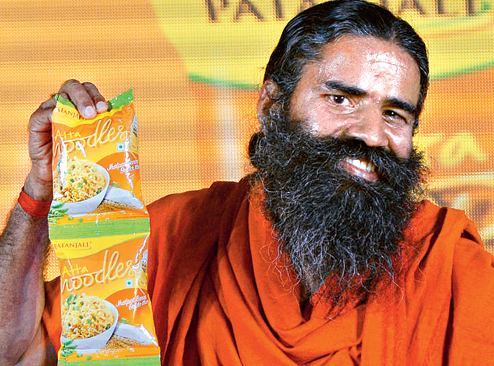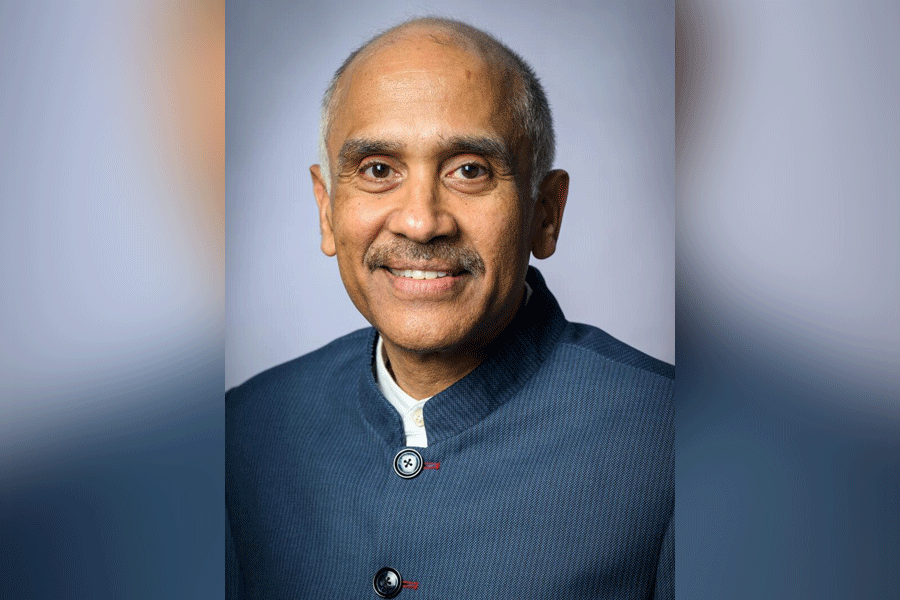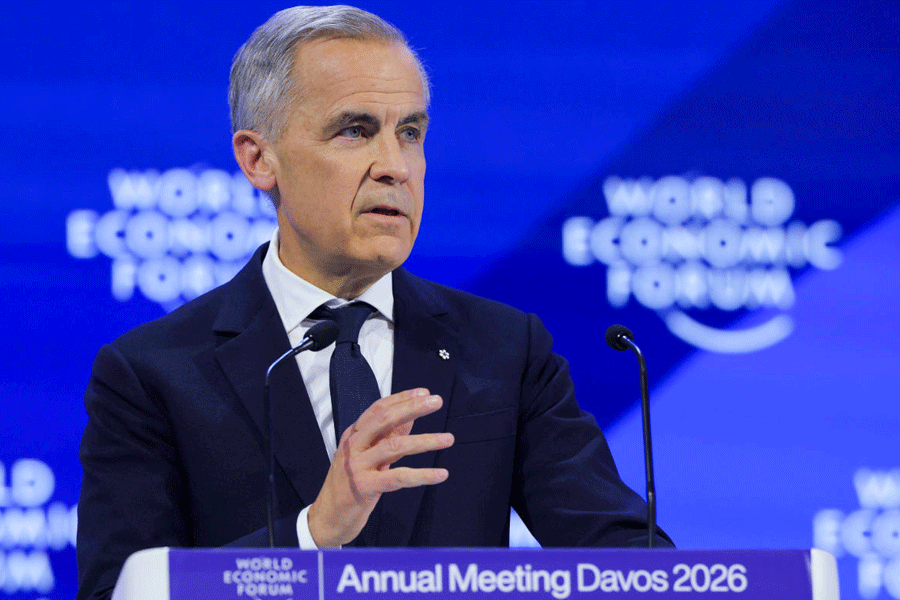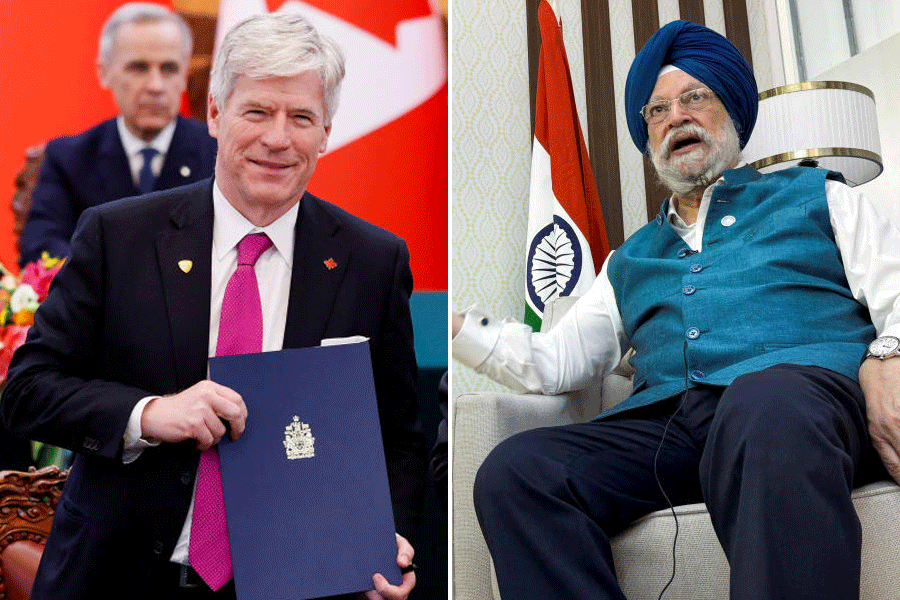
New Delhi, Nov. 16: India's apex food safety regulator today petitioned the Supreme Court to block the return of Maggi noodles on a day a company mentored by yoga teacher Baba Ramdev launched its own brand of instant noodles.
The Food Safety and Standards Authority of India (FSSAI) has challenged the Bombay High Court ruling that allowed Nestle India to get fresh samples of Maggi noodles tested by accredited laboratories and resume selling them if found safe for consumption.
The FSSAI had banned Maggi noodles in June after government laboratories reported higher-than-permissible levels of lead in certain samples. The brand returned to shop shelves on November 9 after three certified labs cleared the latest samples.
The FSSAI petition argues the high court had "erred" by asking Nestle, instead of a neutral authority, to provide the fresh samples for testing.
Also today, Patanjali Ayurved announced its entry into India's market for instant noodles through a ceremony choreographed with corporate-style announcements, advertisement campaigns and chefs recruited for cook-and-serve demonstrations.
"This word, 'noodles', is stuck in people's minds, so we saw no point changing it to sevaiyan," Ramdev said at the ceremony.
"But we are bringing a product that is made from atta (whole-wheat flour) and not from maida (refined wheat flour). We also use rice bran oil, which is superior in nutrition to palm oil."
He added: "We're going to provide stiff competition to multinational noodles."
Nestle sells both atta and maida noodle varieties but did not say which oil it used in them.
Ramdev appeared to be borrowing a promotional line from Nestle, which uses the slogan "Taste bhi, health bhi (Taste, and health too)" to promote its vegetable atta noodles.
Ramdev, just before taking a bite of Patanjali's atta noodles, said: "Our noodles come with health and taste."
A food industry scientist who requested not to be named said the FSSAI challenge and the launch of the Patanjali brand appeared to be just a coincidence. "I would say it is far-fetched to connect the two, but let's see how things play out."
A senior Patanjali Ayurved official told The Telegraph the company had launched its instant atta noodles after "about 18 months of in-house research". He denied that the decision to enter the noodles market had anything to do with Nestle's run-in with the government.
After the June ban, Nestle had challenged the FSSAI's claims in court citing independent laboratory findings that said the samples they had tested did not contain higher-than-permissible lead. The company had questioned the government laboratories' competence to test for lead in noodles.
Nestle expressed surprise at the FSSAI plea. "We'll want to read the petition in detail but any samples of Maggi noodles can only come from the company. Who else can provide them?" an official said.
Patanjali has the capacity to produce 200 tonnes of noodles a day at its plants in Uttar Pradesh, Andhra Pradesh, the National Capital Region and Maharashtra, said Acharya Balkrishan, Ayurveda scholar and adviser to Ramdev. "We'll also bring an oil-free version of the noodles," Ramdev said.
A Patanjali official said the atta noodles would be available at nearly 10 lakh retail outlets within a year. The oil-free variant will sell only at ayurvedic medicine stores.
Two chefs, each with a classic toque blanche, stood through the ceremony, dropping noodles into a frying pan containing boiling water and placing them on plates.
Sanju Rai, one of the chefs, who runs a catering business that offers Chinese, continental and Indian food for parties, didn't appear too happy about his assigned role today.
"I can't give my own hand's taste through this, I'm only giving the company's taste," Rai said.











